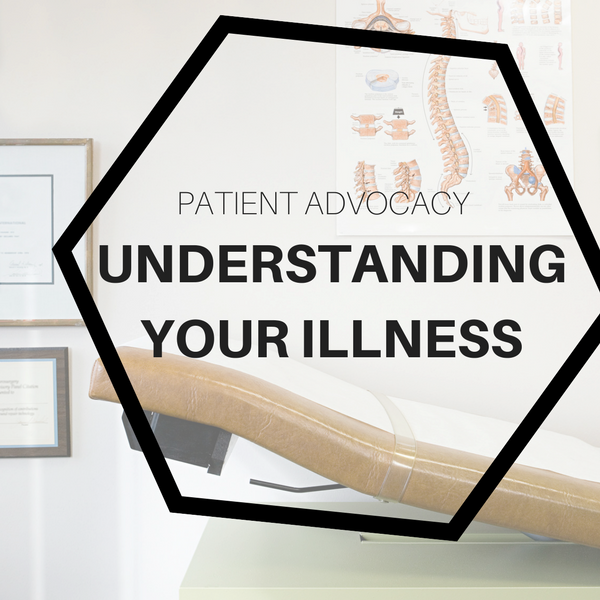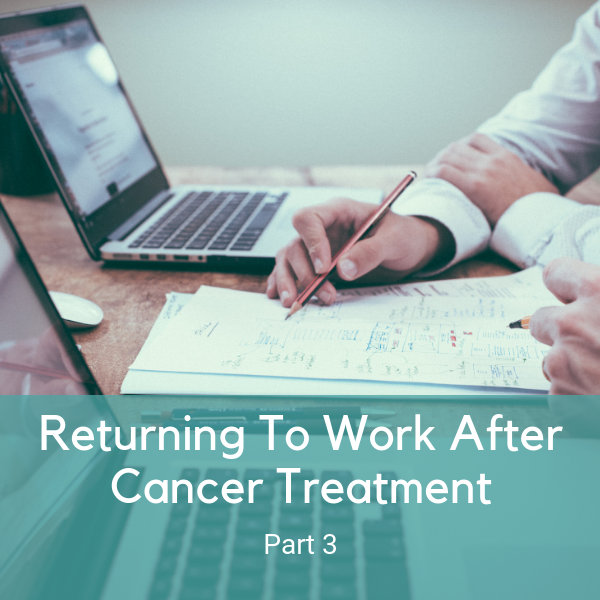Patient Advocacy: Understanding Your Illness
The news that you, or a loved one, has a serious illness can be a terrible blow. You may be faced with an array of emotions ranging from shock to fear to anxiety. You will likely have many questions and concerns about what the coming days and months will bring, and the impact living with this illness will have on your life and the lives of your family. Although you may be reeling from the news, it’s important that you learn as much as you can about your diagnosis, its symptoms, how it may progress and what treatment options are available. In this article, you will learn which questions you should ask your healthcare team and where to find reliable and trustworthy information to become better informed about your health condition.
1. Obtaining Information From Your Doctors And Healthcare Team
Having answers to your questions can help you understand your illness better and feel more in control about your treatment decisions. How much information you want is up to you. Some patients feel overwhelmed by too much information at this stage. Others say they didn’t receive enough information. While information upon first diagnosis is vitally important, you may be in shock and in a heightened emotional state which makes it difficult to fully comprehend all the information you are given. If possible, bring a trusted friend or family member to appointments with you to take notes. If this is not possible, ask your doctor if you can record the consultation so you can focus on listening, and go back and review what was said later.
Medical care is a conversation and to have influence in that conversation you have to speak up. Never be embarrassed to tell your healthcare team if you don’t understand something they’ve said. Sometimes doctors use medical jargon without realizing they are not explaining things in terms we understand. Repeat what the doctor has told you to be sure you understand and ask for clarification if needed.
Some questions to ask your doctor about your diagnosis:
- What are the symptoms of this illness?
- What should you do if you notice new symptoms or if existing symptoms worsen?
- Do you need any further diagnostic tests?
- What are your treatment options?
- What are the side-effects of the recommended treatment?
- What are the benefits vs the risks?
- What happens if you do nothing?
- Are there other treatment options available?
Finally, ask your healthcare team if they can recommend further reading, support groups and other resources to help you learn more about your illness.
2. Finding Reliable Information Online
As you move along the patient journey and better understand your illness, you may want higher levels of information. However, you may find the information healthcare professionals provide has not keep pace with your increased needs. This is the point where many patients turn online to seek more information. While the Internet can be a useful source of health information, it’s important to know how to critically evaluate the information you find online. Always discuss what you find with your healthcare team and ask them to put the information into context for your particular situation.
Here are some questions to help you determine the trustworthiness of online sources of information.
- Who has produced the information?
- Does the organization have commercial interests or another reason they are promoting this information?
- Is the name of the organization and their aims in setting up the website clearly shown?
- Does the site provide contact details if you have any questions?
- Is the information on the website up to date?
- Does it cite the source of the information that is being presented?
- Does the site link with other reputable sites that give similar information?
3. Evaluating Medical News Reports
Whether it’s published in hard copy or online, medical news reports can mislead people into thinking a certain drug or treatment is the next breakthrough in a disease. As patient advocates we must learn to read beyond the headlines to filter out the good, the bad, and the questionable.
The following questions will help you evaluate the reliability of medical news reporting.
- Does the article support its claims with scientific research?
- What is the original source of the article?
- Who paid for and conducted the study?
- How many people did the research study include?
- Did the study include a control group?
- What are the study’s limitations?
- If it’s a clinical trial that is being reported on, what stage is the trial at?
Always try to read an original study (if cited) to critically evaluate the information presented. Understanding research literature is an important skill for patient advocates. For tips on how to read a research paper click on this link.
4. Learning From Peers
From helping us to uncover a diagnosis and finding the right doctors and treatments, to learning about everyday coping tips, turning to our peers can make all the difference in how we live with our illnesses. Much of this peer-to-peer learning takes place through social media discussions on patient blogs and in Facebook groups and Twitter chats. On Facebook you can connect with other patient advocates and join Facebook groups related to your disease or health condition. On Twitter you have a greater mix of patients, physicians, healthcare professionals and medical researchers coming together to discuss healthcare matters. It is becoming increasingly popular for attendees at key medical conferences, such as ASCO, to “live-tweet” sessions. You can follow along on Twitter using the conference hashtag which you should find published on the conference website. Another way to learn on Twitter is to join a Twitter chat related to your health condition. Twitter chats can be one-off events, but more usually are recurring weekly chats to regularly connect people. There are chats for most disease topics and a full list can be found by searching the database of the Healthcare Hashtag Project.
Final Thoughts
Understanding your illness is the first step on the path to advocating for yourself and others.
Being an advocate involves asking lots of questions, conducting your own research, and making your preferences known to your healthcare team. By doing this, you will be better informed and in a stronger position to get the treatment that is right for you. If this feels overwhelming to you right now, go at your own pace, and reach out to others who have walked this path before you. There is an army of patients who are standing by, ready to share their healthcare wisdom and practical coping tips with you. Seeking their advice will help lessen the fear and isolation you may be feeling, give you a sense of shared experience and connection, and help you feel more in charge of your healthcare decisions.

A Stanford Medicine X e-Patient scholar, Marie Ennis O’Connor is an internationally recognized keynote speaker, writer, and consultant on global trends in patient engagement, digital health and participatory medicine. Marie’s work is informed by her passion for embedding the patient voice at the heart of healthcare values. She writes about the experience of transitioning from breast cancer patient to advocate on her award-winning blog Journeying Beyond Breast Cancer.










